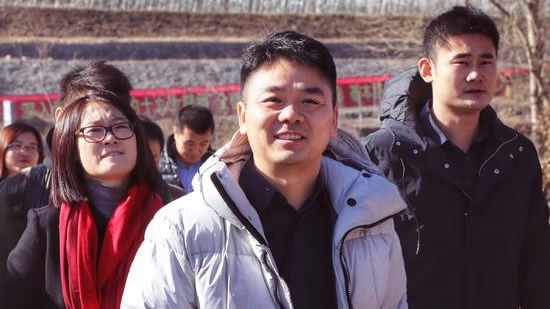Liu Qiangdong, also known as Richard Liu, founder and CEO of China’s leading e-commerce company JD.com, was officially named honorary director of a small and impoverished village in Fuping County in north China’s Hebei Province.
The billionaire attended a village inauguration ceremony on Tuesday, describing his goals for the village: “In three years, I will help residents at Pingshitou Village shake off poverty. In five years, I will increase their average income by a factor of 10.”

Liu Qiangdong's new business cards. /Weibo Photo
Liu Qiangdong's new business cards. /Weibo Photo
Instead of simply making donations to help relieve poverty, Liu said in his inauguration speech that he wants to reach his targets by industrial means, including introducing the village to e-commerce, recruiting residents to work in his company and promoting local tourism.
But why does the billionaire want to be head of an impoverished village?
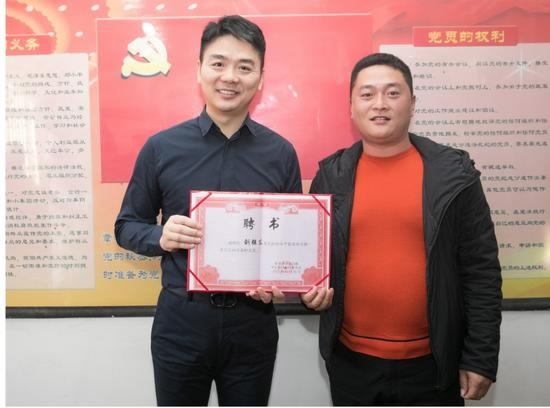
Liu held his engagement letter as the honorary director of Pingshitou Village on Tuesday. /Hebei Youth Daily Photo
Liu held his engagement letter as the honorary director of Pingshitou Village on Tuesday. /Hebei Youth Daily Photo
Extreme poverty
Fuping County may just be 300 kilometers south of the country’s capital, but it is extremely poor. In 2016, rural residents here had an average annual disposable income of 6,542 yuan (990 US dollars), according to the county’s 2017 government work report.
This reality has drawn great attention. In December 2012, Chinese leader Xi Jinping urged local authorities to escalate poverty-alleviation work during his visit to the impoverished villages in the county.
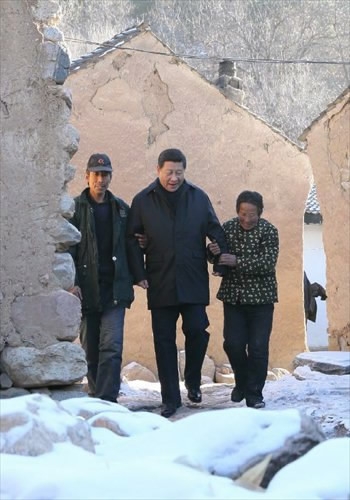
President Xi Jinping (C) visits the family of Tang Zongxiu (R), an impoverished villager in Luotuowan Village of Longquanguan Township, Fuping County, north China's Hebei Province, Dec. 30, 2012. /Xinhua Photo
President Xi Jinping (C) visits the family of Tang Zongxiu (R), an impoverished villager in Luotuowan Village of Longquanguan Township, Fuping County, north China's Hebei Province, Dec. 30, 2012. /Xinhua Photo
In the past five years, the total number of poverty stricken population in Fuping decreased from 108,100 to 28,800, and poverty incidence dropped from 54.4 percent to 14.8 percent.
JD.com began doing poverty relief work in Fuping County in 2015, promoting local specialty industries like tea and mushrooms as well as introducing cultural industry.
Underdeveloped rural e-commerce business
Alibaba, JD’s top competitor, also started a rural strategy on its e-commerce platform Taobao in 2014 when it set up local service centers in about 30,000 villages across 700 counties to support its e-commerce business and provide delivery services in rural areas.
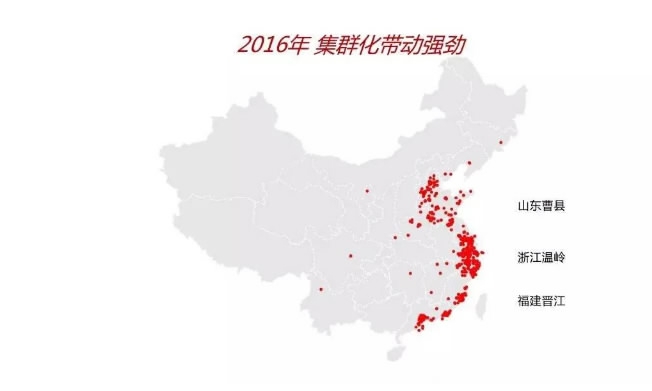
Distribution of Alibaba's service centers in rural China in 2016. /AliResearch Photo
Distribution of Alibaba's service centers in rural China in 2016. /AliResearch Photo
To meet its rising demand, JD.com is expanding its service centers in rural areas, home to almost half of the country’s population. The company signed a poverty alleviation deal with the county that would allow villagers to market and sell their produce online in September 2016, The Paper reported.
Special location: Within Jing-Jin-Ji region
Pingshitou is one of the surrounding provincial areas near Beijing.
The small village is within the Beijing-Tianjin-Hebei metropolitan region, also known as Jing-Jin-Ji region. In 2014, China’s central authorities issued a development plan to boost the economic integration of the two municipalities of Beijing and Tianjin, integrating their economies with the surrounding province of Hebei.
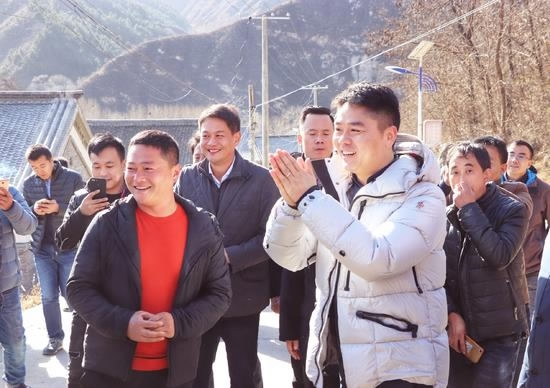
Liu Qiangdong visited Pingshitou Village on Tuesday. /Hebei Youth Daily Photo
Liu Qiangdong visited Pingshitou Village on Tuesday. /Hebei Youth Daily Photo
Six key-focus areas of the strategy have been outlined, including industrial upgrading, transport integration and environmental protection. The joint development strategy received 984 billion yuan (about 143 billion US dollars) in funding from China Development Bank in 2016. Several areas throughout Hebei Province have already seen investment, fresh labor and growing economies, which means the village Liu chosen has been prioritized in terms of national policy.
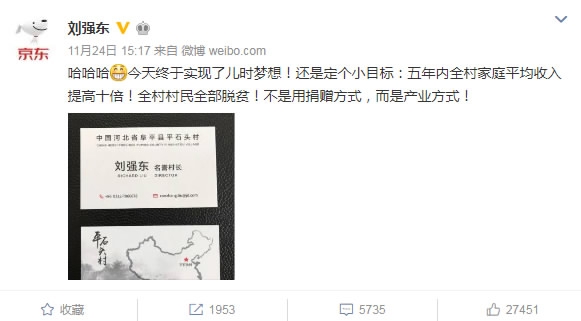
Last Friday, Liu posted on Weibo, China's equivalent of Twitter, cheering of achieving his childhood dream. /Weibo Photo
Last Friday, Liu posted on Weibo, China's equivalent of Twitter, cheering of achieving his childhood dream. /Weibo Photo
Liu, a billionaire who ranked 174th on the Forbes 2017 Billionaires List, has finally realized his childhood dream of being a government official.

